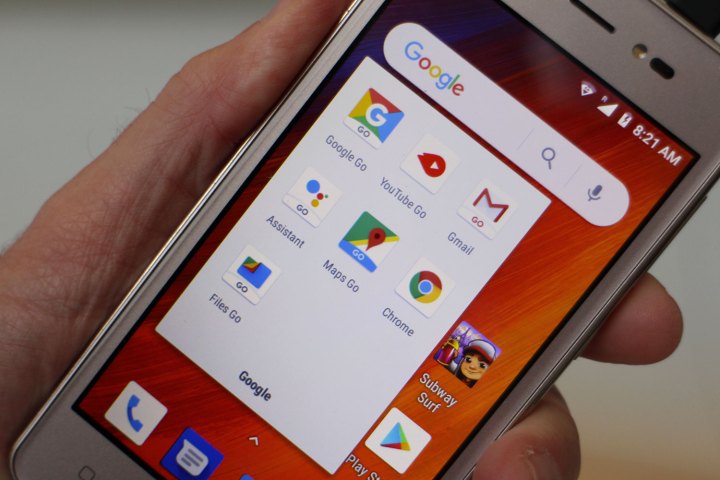
Google launched Google Go in South Africa in an effort to address the concerns of those with weak data connectivity and high data costs. The app reduces the amount of data needed to display search results by 40 percent.
With Google Go, users are able to receive search results quickly even on slow connections such as 2G networks. Since the app is only 5MB in size, it’s also faster to download and doesn’t take up much space on your phone — which is especially useful for smartphones with a low amount of storage.
Rather than type out what they’re searching for, users are able to tap through trending topics or queries or even opt for the voice function to say what they’re looking for. Google Go will also pull up photos and animated images if you tap on the “Images” or “GIFs” tabs, which you can send to others.
Google Go will come pre-installed on Android Oreo (Go edition) devices. Android Go — which was first launched in 2017 — was specifically created by Google as a scaled-down version of
But Google apps aren’t the only light versions of apps available on the market. First launched in 2015, Facebook released Facebook Lite — a stripped-down version of its main Facebook app. Weighing in at less than one megabyte in size, people can download it in seconds regardless of how sluggish their connection is.
As with Google Go, Facebook Lite includes all of the basic features you need. You can post to a timeline, search people, like photos and posts, as well as edit your profile. Available only for Android devices, the app recently expanded to the U.S. in March.
Other lightweight versions of apps available include Twitter Lite and YouTube Go — which also offer the same basic functions you would have with the regular versions. But both apps have yet to be released in the U.S.
Google Go is available in 26 sub-Saharan African countries through the Google Play Store. As for the expansion of the app, the company plans to release it in other emerging markets including India, Brazil, and Indonesia.
Editors' Recommendations
- A new Google Pixel Tablet is coming, but it’s not what you think
- Google just released the first Android 15 beta. Here’s what’s new
- Google is going to change Pixel phones forever, and I can’t wait
- Google Pixel 9: news, rumored price, release date, and more
- Android 15 has two hidden features you’re going to love

